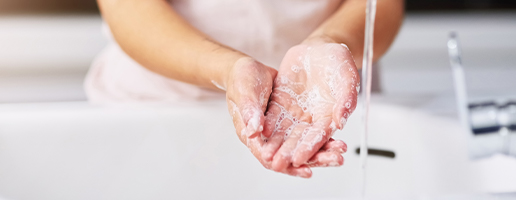Top tips for schools and childcare programmes to plan, prepare and respond to COVID-19

Currently, COVID-19 infection numbers are increasing daily around the world. As health authorities review and implement plans for healthcare providers, employers, school boards and the general public, it’s understandable that concern would be raised regarding the safety of children. What can school boards do to offer improved protection? Here are a few things to keep in mind.
With specific information about COVID-19 still in research stages, much is still being determined in order to better protect and treat infections from the 2019 coronavirus.
Understandably, parents and school boards are needing to implement protective and supportive strategies to ensure that if someone is exposed to this virus, everyone on the physical premises are well taken care of.
Educational and childcare environments must implement preparation and response plans in collaboration with local health departments.
“There is a definite need to implement strategies that help to minimise teaching and learning or other operational disruptions, as well as protect against potential stigma and discrimination or bullying,” says Discovery Health’s Head of the Centre for Clinical Excellence, Dr Noluthando Nematswerani.
“Encouraging preventive measures to curb the spread of infection is also of the utmost importance within learning and childcare environments. Administrative staff must ensure that plans allow for routine communication that keeps everyone involved well informed about developments and plans, including necessary changes – before, during and after exposure to COVID-19,” she adds.
Tips for schools and childcare programmes
Consider the following so as to best protect all students, staff, and parents, including those with special health needs:
-
Organisation policies. Emergency operations plans must be reviewed and updated to address procedures for the outbreak of an infectious disease. Strategies may already account for conditions such as seasonal flu. They can be updated to include COVID-19.
Policies and practices can include strategies to prevent the spread of the disease, such as general hygiene practices and making allowances for individuals to stay home when unwell. Attendance and sick leave policies should also be carefully reviewed and updated as needed. Some flexibility in these policies may be needed if staff need to remain home to care for an unwell member of their family.
- Review procedures for dealing with illness in the environment. This can involve what to do if someone in the environment shows obvious signs of illness, especially breathing difficulties. Is there a clean and separate room for an unwell person to use until they are able to return home?
- Educational and awareness tools. Prepare and distribute posters, fact sheets and leaflets that keep everyone informed about how to protect themselves and others within the environment. Leaflets or notices can also be distributed to parents and guide them on when to keep their children away from a childcare or learning environment. Take guidance directly from official information shared with the general public by healthcare authorities.
-
Ensure that the environment is ready to implement preventive measures. Make sure that all handwashing facilities are well equipped with clean running water and soap at all times. Clean drying towels which can be safely discarded will also be needed.
Hand sanitisers with at least 60% alcohol should also be made available if soap and water is not available. Disposable wipes can also be provided to clean surfaces and objects which may have been touched between washing hands.
- Routine cleaning of the shared environment. All surfaces and objects that are frequently touched must be kept clean to minimise the risk of exposure to coronvirus.
- Implement effective information sharing systems. Parents, staff and the local health department must be kept informed about any developments.
- Monitor absenteeism. Childcare and educational administration teams must monitor absenteeism patterns among staff and learners or young children. Local health departments should ideally be kept up to date if there are any spikes in absences, especially if cases of COVID-19 have been confirmed in the area.
-
Postpone or cancel any planned trips. If there are any travel plans for staff or learners, caution is strongly advisable. “Take guidance from local health authorities,” advises Dr Nematswerani.
“Exercising caution when it comes to travel, especially if there are plans to go abroad or to an area where an active outbreak is confirmed, is very important. Everyone must be aware of the most up to date travel recommendations and follow the guidance of healthcare officials and authority organisations.” For anyone arriving back in South Africa from a country where localised transmission has occurred (which would include all of the high risk countries as well as countries such as the UK,US,France, Germany and Israel)
- Please do not come on to the school premises for 14 days and self-quarantine according to the NICD guidelines
- If you have had any direct contact with your children, they are also to remain at home for a 14-day period
- Please let the school Principal know about your travels
There are a number of articles that point out the anomaly that the virus leaves young children virtually untouched but that said, children may still be carriers of COVID-19 while still being asymptomatic.
-
Have a response plan. If a case of COVID-19 is suspected or identified that may place people at risk; implement the response plan. “Should it come to anyone’s attention that there may have been risk of exposure, local health authorities must be notified immediately,” says Dr Nematswerani.
“Local health authorities will guide everyone on the correct course of action. This may involve the continuation of normal operations, along with preventive measures. It may also mean a period of shutdown – if a case of COVID-19 is confirmed and there is reason to believe broader populations are at higher risk of exposure. This will depend on the situation. Administrators should not make this call on their own,” she adds.
“Keeping the details of the person involved confidential will also be important, as will open communication with parents, staff and learners on next steps required. Events and extracurricular activities may need to be cancelled and social get-togethers may need to be discouraged.”
Depending on the available resources, continuity plans for continuing education without physical contact can be implemented, such using e learning (digital learning access)
ALL MEDICAL INFORMATION FOUND ON THIS WEBSITE INCLUDING CONTENT, GRAPHICS AND IMAGES, IS FOR EDUCATIONAL AND INFORMATIONAL OBJECTIVES ONLY. DISCOVERY HEALTH PUBLISHES THIS CONTENT TO HELP TO PROTECT AND EMPOWER ALL SOUTH AFRICANS BY PROMOTING A BETTER UNDERSTANDING OF COVID-19.
Find a healthcare professional near you
Find a doctor or hospital near you online or by using the Discovery app.
Related articles

Outbreak of the 2019 novel coronavirus
The 2019 novel coronavirus (2019-nCoV) has caused an outbreak of fatal respiratory illness first detected in Wuhan, China. This is a completely new strain with no vaccines available. The best way to prevent infection is to avoid being exposed to this virus.

Understand the Novel Coronavirus (COVID-19) and prevent infection
No country is immune to the spread of the Novel Coronavirus - officially named COVID-19 by the World Health Organization (WHO). The outbreak has reached pandemic proportions and been declared a global public health emergency.

Novel Coronavirus - wash your hands of the threat
As toddlers, we learnt to wash our hands. But, did we ever master the skill to the extent that is needed to wash pathogens off our hands, and save lives? Multiple studies show people don't wash their hands at the right times, in the right way or for the right amount of time. We contaminate the things and people we touch with the germs we carry on our hands.